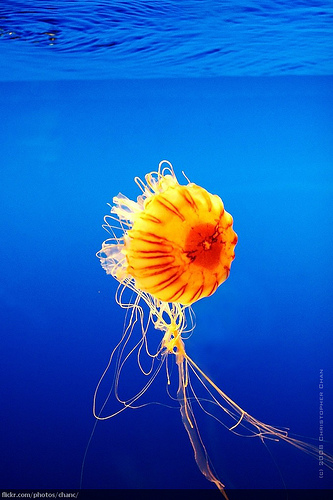Photo: Christopher ChanAround the world, fishermen and swimmers are running into a problem: jellyfish. The slick, stinging blobs are showing up in increasing numbers, earlier in the year, and in more places than ever before. Is there a reason for the jellyfish invasion? Unfortunately, yes—and like most reasons for ocean decline, it relates to how we are changing the environment.
Data is lacking, but it’s likely that warmer waters help jellyfish grow faster and reproduce better. Also, overfishing can mean both fewer jellyfish predators and fewer competitors, which means more peace and more food for jellies. As large predatory fish are disappearing from the world’s ocean, we are left with the cockroaches of the sea: simple filter feeders like jellyfish.
Jellyfish in the Gulf of Mexico are so numerous they have clogged nets and prevented shrimp fishermen from making their catch. And as any fisherman will tell you, a sea full of jellyfish does not make for good fishing, swimming and boating (jellies can make children cry). Their abundance can disrupt the balance of marine ecosystems, and hurt the fisheries that depend on that balance.Read more
